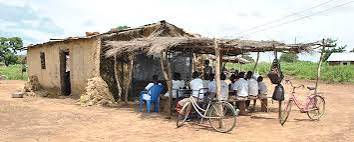Five Major Hindrances to Ghana's Development as a Nation
Ghana is a country with rich history, vast natural resources, and a strong cultural heritage. Since gaining independence in 1957, it has made significant strides in various areas, including education, infrastructure, and governance. However, despite these achievements, there are still several obstacles preventing Ghana from reaching its full potential. This article will explore five major hindrances to Ghana’s development as a nation.
1. Corruption
Corruption remains one of the most significant barriers to Ghana's progress. Corruption affects various sectors of the economy, from public services to politics and the judiciary. When government funds that are meant for development projects are misused or embezzled, it slows down economic growth and hinders the delivery of essential services like healthcare, education, and infrastructure.
Corruption also creates a lack of trust in the government. Many citizens feel disconnected from their leaders and believe that public officials prioritise their personal interests over the needs of the people. Efforts to fight corruption in Ghana, such as the establishment of anti-corruption agencies and laws, have not fully solved the problem. For Ghana to develop, stronger measures need to be put in place to ensure accountability and transparency in governance.
2. Poor Infrastructure
While Ghana has made improvements in infrastructure over the years, there are still major gaps, especially in rural areas. Poor road networks, inadequate transportation systems, and unreliable electricity and water supply are just a few examples of the challenges the country faces. These infrastructure deficits have a direct impact on economic growth.
For instance, bad roads make it difficult for farmers to transport their produce to markets, leading to losses and reduced incomes. Unreliable electricity also affects industries and businesses, causing production delays and increasing costs. Without a strong infrastructure backbone, it is difficult for any nation to grow its economy or improve the quality of life for its citizens.
3. Unemployment and Underemployment
Unemployment, especially among the youth, is a pressing issue in Ghana. Many young people struggle to find jobs, and those who do often face underemployment—working in jobs that don’t match their skills or provide adequate income. The education system, while improving, does not always equip students with the practical skills needed in today’s job market. As a result, there is a disconnect between what is taught in schools and the demands of employers.
High unemployment rates can lead to increased poverty and social unrest. When people, particularly young graduates, cannot find meaningful work, they may feel frustrated and lose hope in the future. Addressing this issue requires creating more job opportunities, investing in vocational and technical training, and encouraging entrepreneurship.
4. Inequality and Poverty
Despite its natural resources and economic potential, Ghana continues to struggle with inequality and poverty. There is a significant gap between the wealthy and the poor, with rural areas being the hardest hit by poverty. Many rural communities lack access to basic services such as healthcare, clean water, and quality education.
This inequality limits the country's overall development. When a large part of the population is left behind, it reduces the nation's human capital and hinders productivity. To tackle this issue, Ghana must invest in policies and programs that address the needs of the poorest and most vulnerable, especially in rural areas. This could include improving access to education, healthcare, and social safety nets for those living in extreme poverty.
5. Political Instability and Partisanship
While Ghana is often praised for its peaceful transitions of power, political instability and excessive partisanship still hinder its development. Political parties in Ghana often prioritize their own interests over the needs of the country, leading to a cycle of promises and under-delivery. This constant battle between political parties creates a lack of long-term planning and continuity in policies, as new governments often abandon or modify the projects of their predecessors.
Additionally, during election periods, there is often heightened tension, which can create uncertainty in the economy. Businesses may hold off on investments, and the government may focus more on winning votes than addressing key development issues. Political stability and collaboration between parties are essential for long-term national development.
Conclusion
Ghana has enormous potential for growth and development. However, corruption, poor infrastructure, unemployment, inequality, and political instability continue to slow its progress. Addressing these challenges requires a collective effort from the government, private sector, and citizens. By promoting transparency, investing in infrastructure, creating more job opportunities, reducing inequality, and fostering political unity, Ghana can unlock its full potential and create a brighter future for all its citizens.


